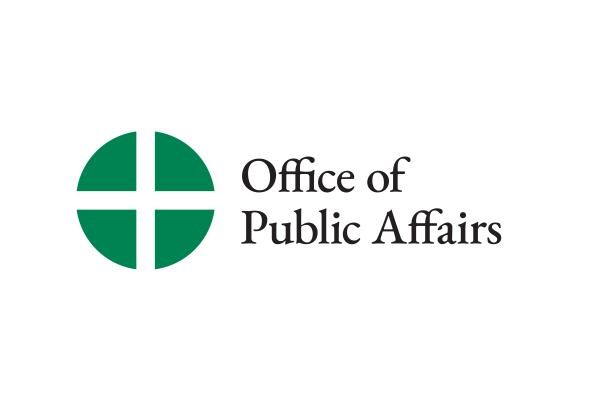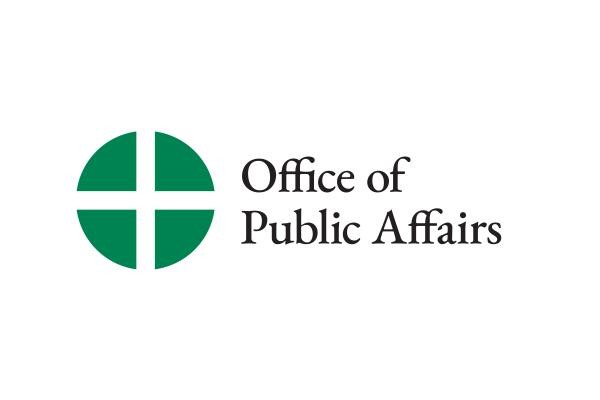USCCB Files Supreme Court Briefs Supporting DOMA, Proposition 8
WASHINGTON—The U.S. Conference ofCatholic Bishops on January 29 filed amicusbriefs in the United States Supreme Court in support of the federal Defense ofMarriage Act (DOMA) and California's Proposition 8, both of which confirm the definition of marriage as theunion of one man and one woman.
WASHINGTON—The U.S. Conference ofCatholic Bishops on January 29 filed amicusbriefs in the United States Supreme Court in support of the federal Defense ofMarriage Act (DOMA) and California's Proposition 8, both of which confirm the definition of marriage as theunion of one man and one woman.
DOMAwas passed by Congress and signed by President Clinton in 1996 and definesmarriage for federal and inter-state recognition purposes. Proposition 8 is a stateconstitutional amendment approved by the citizens of California in 2008. Bothlaws are challenged because they define marriage exclusively as the union ofone man and one woman.
Urging the Court to uphold DOMA https://www.usccb.org/about/general-counsel/amicus-briefs/upload/united-states-v-windsor.pdfthe USCCB brief in United States v. Windsor says that "there is no fundamental rightto marry a person of the same sex." The brief also states that "as defined bycourts 'sexual orientation' is not a classification that should triggerheightened scrutiny," such as race or ethnicity would.
It added that "civil recognition ofsame-sex relationships is not deeply rooted in the Nation's history andtradition—quite the opposite is true. Nor can the treatment of such relationshipsas marriages be said to be implicit in the concept of ordered liberty, suchthat neither liberty nor justice would exist if they were sacrificed."
USCCB argued that previous SupremeCourt decisions "describing marriage as a fundamental right plainly contemplatethe union of one man and one woman."
The USCCB also cautioned that adecision invalidating DOMA "would have adverse consequences in other areas oflaw."
In a separate brief filed in Hollingsworth v Perry urging the Courtto uphold Proposition 8 https://www.usccb.org/about/general-counsel/amicus-briefs/upload/hollingsworth-v-perry.pdf,the USCCB states that there are many reasons why the state may reasonablysupport and encourage marriage, understood as the union of one man and onewoman, as distinguished from other relationships. Government support formarriage, so understood, is "recognizing the unique capacity of opposite-sexcouples to procreate" and "the unique value to children of being raised bytheir mother and father together."
The USCCB brief states that "[T]hePeople of California could reasonably conclude that a home with a mother and afather is the optimal environment for raising children, an ideal thatProposition 8 encourages and promotes. Given both the unique capacity forreproduction and unique value of homes with a mother and father, it isreasonable for a State to treat the union of one man and one woman as having apublic value that is absent from other intimate interpersonal relationships."
The USCCB brief adds that "Whilethis Court has held that laws forbiddingprivate, consensual, homosexual conduct between adults lack a rational basis,it does not follow that the government has a constitutional duty to encourageor endorse such conduct. Thus, governments may legitimately decide to furtherthe interests of opposite-sex unions only. Similarly, minimum standards ofrationality under the Constitution do not require adopting the lower court'sincoherent definition of 'marriage' as merely a 'committed lifelongrelationship,' which is wildly over-inclusive, empties the term of its meaning,and leads to absurd results."
"Marriage, understood as the unionof one man and one woman, is not an historical relic, but a vital andfoundational institution of civil society today," the USCCB brief states. "Thegovernment interests in continuing to encourage and support it are not merelylegitimate, but compelling. No other institution joins together persons withthe natural ability to have children, to assure that those children areproperly cared for. No other institution ensures that children will at leasthave the opportunity of being raised by their mother and father together. Societalills that flow from the dissolution of marriage and family would not beaddressed—indeed, they would only be aggravated—were the government to fail toreinforce the union of one man and one woman with the unique encouragement andsupport it deserves."
The USCCB brief also notes that "Proposition8 is not rendered invalid because some of its supporters were informed byreligious or moral considerations. Many, if not most, of the significant socialand political movements in our Nation's history were based on precisely suchconsiderations.Moreover, the argumentto redefine marriage to include the union of persons of the same sex issimilarly based on a combination of religious and moral considerations (albeitones that are, in our view, flawed).Asis well established in this Court's precedent, the coincidence of law andmorality, or law and religious teaching, does not detract from the rationalityof a law."
USCCB notes that a judicial decisioninvalidating Proposition 8's definition of marriage would have adverseconsequences in other areas of law.
"[R]edefining marriage—particularlyas a matter of constitutional law, rather than legislative process—not onlythreatens principles of federalism and separation of powers, but would have awidespread adverse impact on other constitutional rights, such as the freedomsof religion, conscience, speech, and association.Affirmance of the judgment below would createan engine of conflict in this area, embroiling this Court and lower courts in aseries of otherwise avoidable disputes—pitting constitutional right squarelyagainst constitutional right—for years to come."
---
Keywords: DOMA, Defense of Marriage Act, Proposition 8, Prop8, U.S. Conference of Catholic Bishops, USCCB, same-sex marriage, gay marriage,United States v. Windsor, Supreme Court, California
# # # # #
MEDIA CONTACT ONLY:Sr. Mary Ann WalshO: 202-541-3200M: 301-325-7935Email

